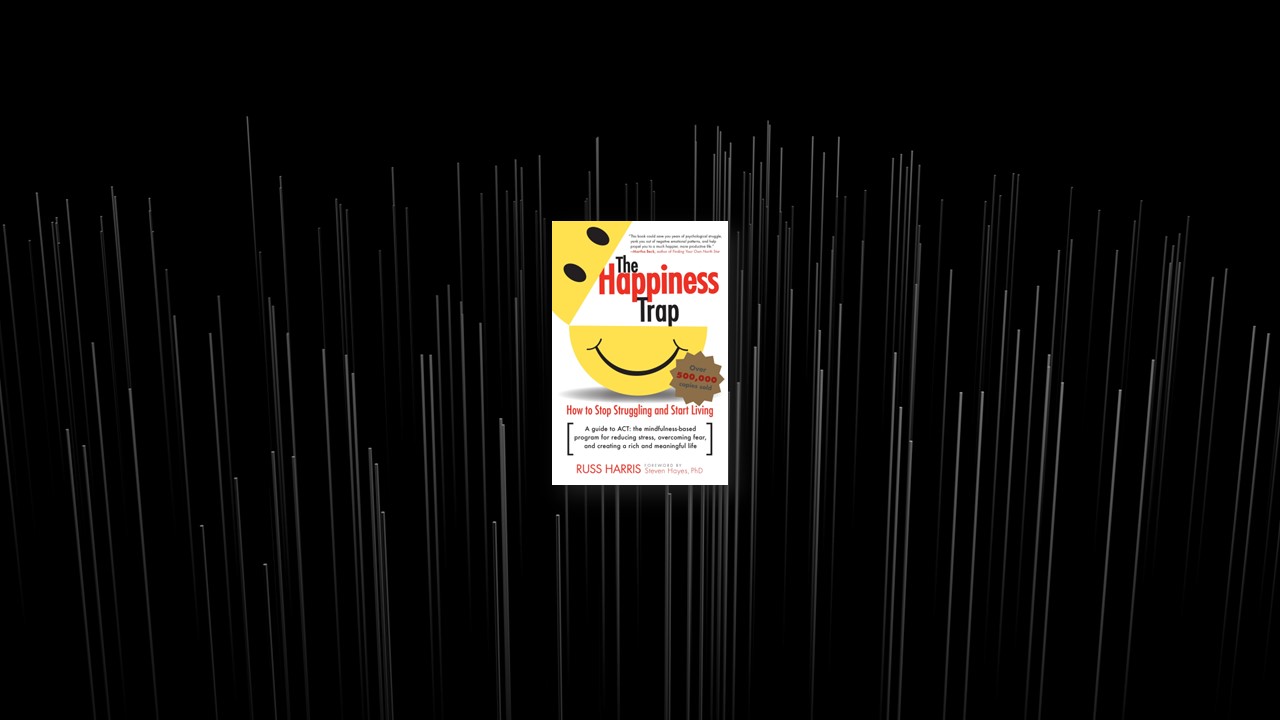Myth No.1: Happiness Is The Natural State For All Human Beings
Our culture insists that humans are naturally happy. But the statistics quoted in the introduction clearly disprove this. Remember, one in ten adults will attempt suicide, and one in five will suffer from depression. What’s more, the statistical probability that you will suffer from a psychiatric disorder at some stage in your life is almost 30 per cent! Not exactly great odds, are they?
And when you add in all the misery caused by problems that are not classified as psychiatric disorders—loneliness, divorce, sexual difficulties, work stress, midlife crisis, relationship issues, domestic violence, social isolation, bullying, prejudice, low self-esteem, chronic anger and lack of meaning or purpose in life—you start to get some idea of just how rare true happiness really is. Unfortunately, many people walk around with the belief that everyone else is happy except for them. And—you guessed it—this belief creates even more unhappiness.
Myth No.2: If You’re Not Happy, You’re Defective
Following logically from Myth 1, western society assumes that mental suffering is abnormal. It is seen as a weakness or illness, a product of a mind that is somehow faulty or defective. This means that when we do inevitably experience painful thoughts and feelings, we often criticise ourselves for being weak or stupid. Health professionals contribute to this process by readily slapping on labels such as, ‘You’re depressed’, and these labels merely confirm how defective we are.
Acceptance and Commitment Therapy is based on a dramatically different assumption. ACT proposes that the normal thinking processes of a healthy human mind will naturally lead to psychological suffering. You’re not defective—your mind’s just doing its job; the thing it evolved to do. Fortunately, ACT can teach you how to adapt to this in such a way that your life will be powerfully transformed.
Myth No.3: To Create A Better Life, We Must Get Rid Of Negative Feelings
We live in a feel-good society, a culture thoroughly obsessed with finding happiness. And what does that society tell us to do? To eliminate ‘negative’ feelings and accumulate ‘positive’ ones in their place. It’s a nice theory and on the surface it seems to make sense. After all, who wants to have unpleasant feelings? But here’s the catch: the things we generally value most in life bring with them a whole range of feelings, both pleasant and unpleasant. For example, in an intimate long-term relationship, although you will experience wonderful feelings such as love and joy, you will also inevitably experience disappointment and frustration. There is no such thing as the perfect partner and sooner or later conflicts of interest will happen.
Myth No.4: You Should Be Able To Control What You Think And Feel
The fact is, we have much less control over our thoughts and feelings than we would like. It’s not that we have no control; it’s just that we have much less than the ‘experts’ would have us believe. However, we do have a huge amount of control over our actions. And it’s through taking action that we create a rich, full and meaningful life.
The overwhelming majority of self-help programs subscribe to Myth 4. For example, many approaches teach you to identify negative thoughts and replace them with more positive ones. Other approaches encourage the repetition of positive affirmations such as, ‘Everything that happens is for my highest good and greatest joy’, or ‘I am strong, able and capable at all times’. Still other approaches encourage you to visualise what you want, to vividly imagine yourself the way you want to be, living the life you dream of. The basic theme of all these approaches is this: if you challenge your negative thoughts or images and, instead, repeatedly fill your head with positive thoughts and images, you will find happiness. If only life were that simple!
THE SIX CORE PRINCIPLES OF ACT
Acceptance and Commitment Therapy is based upon six core principles which work together to help you achieve two main goals: a) to effectively handle painful thoughts and feelings, and b) to create a rich, full and meaningful life.
PRINCIPLE 1: DEFUSION
Defusion means relating to your thoughts in a new way, so they have much less impact and influence over you. As you learn to defuse painful and unpleasant thoughts, they will lose their ability to frighten, disturb or depress you. And as you learn to defuse unhelpful thoughts, such as self-limiting beliefs and harsh self-criticisms, they will have much less influence over your behaviour.
PRINCIPLE 2: EXPANSION
Expansion means making room for unpleasant feelings, sensations and urges, instead of trying to suppress them or push them away. As you open up and make space for these feelings, you will find they bother you much less, and they ‘move on’ much more rapidly, instead of ‘hanging a round’ and disturbing you.
PRINCIPLE 3: CONNECTION
Connection means living in the present; focusing on and engaging fully in whatever you’re doing. Instead of dwelling on the past, or worrying about the future, you are deeply connected with what is happening right here, right now.
PRINCIPLE 4: THE OBSERVING SELF
The Observing Self is a powerful aspect of human consciousness, which has been largly ignored by western psychology until now. As you learn how to access this part of yourself, it will enable you to further transform your relationship with unwanted thoughts and feelings.
PRINCIPLE 5: VALUES
Clarifying and connecting with your values is an essential step for making life meaningful. Your values are reflections of what is most important in your heart: what sort of person you want to be; what is significant and meaningful to you; and what you want to stand for in this life. Your values provide direction for your life, and motivate you to make important changes.
PRINCIPLE 6: COMMITTED ACTION
A rich and meaningful life is created through taking action. But not just any action. It happens through effective action, guided by and motivated by your values. And in particular, it happens through committed action: action that you take again, and again, and again, no matter how many times you fail, or go off track. So ‘committed action’ is shorthand for ‘committed, effective, valued action’.
It’s important to remember that while these six basic principles can transform your life in many positive ways, they aren’t the Ten Commandments! You don’t have to follow them. You can apply them if and when you choose to. So play around with them. Experiment. Test them out in your life, and see how they work for you.
A MEANINGFUL LIFE
In whichever domain of life you feel dissatisfied—whether it’s health, work, friends, family, relationships or something else—applying the basic ACT principles will help you transform it. Whatever you’re doing, engage yourself fully in it. Whoever you’re with, be present. When unhelpful thoughts arise, defuse them. When unpleasant feelings arise, make room for them. And whatever your values are, be faithful to them.
If your problems can be solved, then take effective action, guided by your values, to solve them. If your problems can’t be solved, use defusion, expansion and connection to help you accept this. And the more you practise connection—that is, the more awareness you bring to your experience right now—the more you’ll be able to tell which problems are which.
No matter what sort of problematic situation you encounter, there are only ever two sensible courses of action:
- accept it
- take effective action to improve it.
If no effective action is possible right now, then the only option is to accept it until you can take action.


